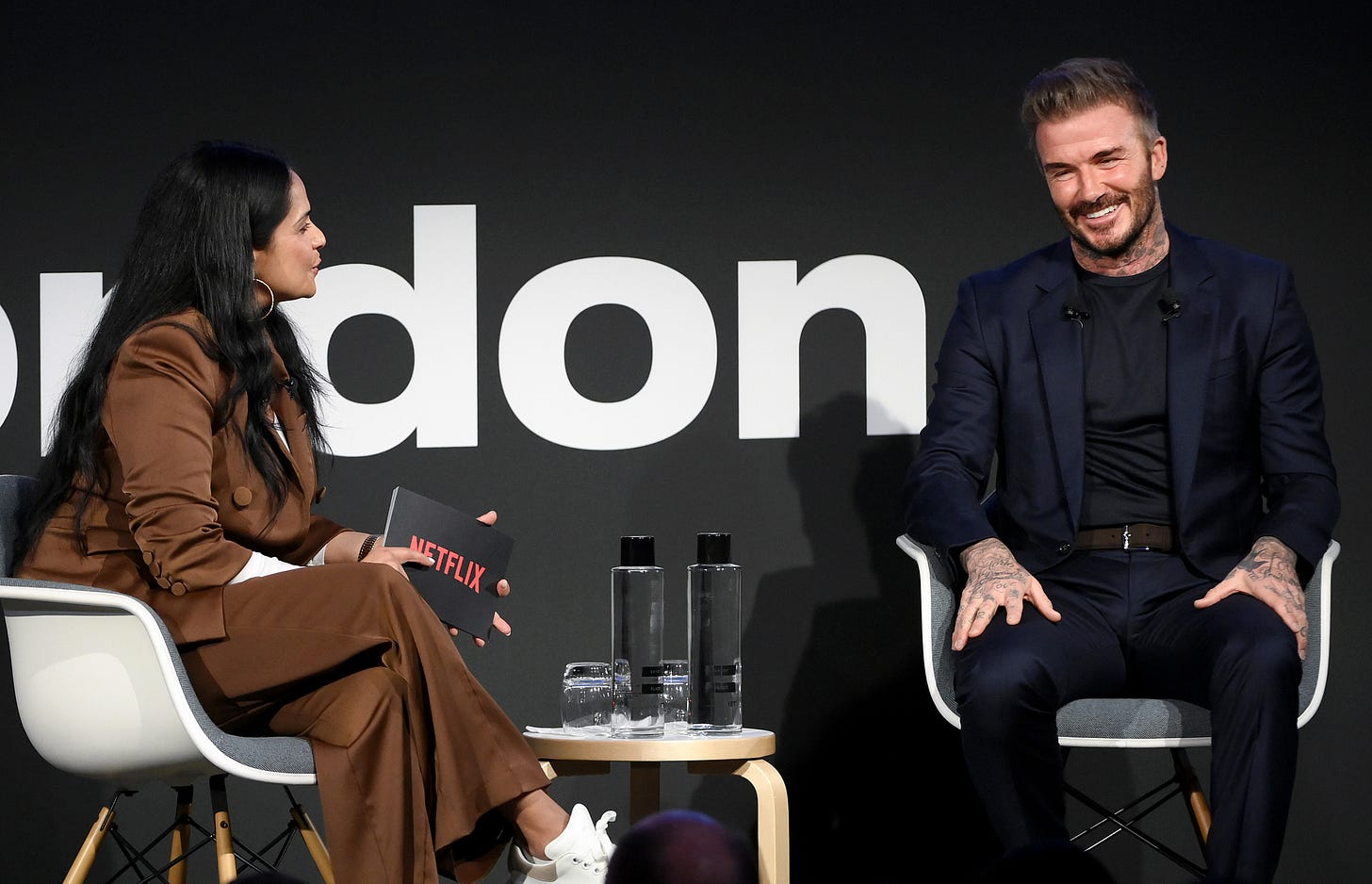Co-Pros, Sales, Formats: 'Japan Is Now the Cool Place You Want to Be'
Int'l execs tell me why the land of the rising sun is a new white-hot market (sorry, Korea, make room) and how to get the deals you need done there
Manori Ravindran writes about int’l TV from London. She recently reported on Ireland’s “conveyer belt” of unscripted production and how the U.K.’s Studio Lambert mints reality hits like Squid Game: The Challenge and Traitors.
If you’re in the U.K., Series Business readers, I hope you survived the double whammy of the inaugural MIP London and London TV Screenings in our winter climes. The number of times I heard a rain-sodden TV executive splutter of the current MIP location vs. the former, “Well, it’s not bloody Cannes, is it?”
It most certainly isn’t, and I think we’d all much rather be on the Croisette having a glass of rosé (or five). I’ve heard complaints from exhibitors about MIP’s Savoy Hotel and IET London venue — “all the charm of a community college” and too far from the distributors’ screenings in Soho. A lot of people I've spoken to were exhausted from running between the two events. Meanwhile, execs who were at Realscreen and NATPE in January are pointing out that there's been little value for them to hit MIP just three weeks later. One veteran exec simply messaged me to say: "Petition for the return of MIPTV [in April].”
Kvetching aside, some of the programming seems to be focused on actually helping the industry navigate turbulent times (if not London traffic) and the great pivot to digital. Just look at the headlines coming out of the U.K. this past week: Brit filmmaker Dan Reed’s sequel to Leaving Neverland — his doc about Michael Jackson’s alleged sexual abuse victims, Wade Robson and James Safechuck — is heading to YouTube in the U.S. after its Channel 4 broadcast (the first Neverland doc aired in early 2019 on HBO in the U.S., then a few days later on Channel 4). U.K. ratings service Barb is becoming the first of its kind to measure YouTube viewing on TV. And Netflix has picked up yet another British YouTube format (Blue Therapy) as an original.
If only we’d had a senior Netflix executive on hand in London — someone who really understands international — to detail how they’re working with global YouTube talent! Oh wait, we did. The streamer’s chief content officer, Bela Bajaria, was in the building for a hot second, but her 45 minutes on stage at MIP London were taken up quizzing David Beckham about his cheeky Hugo Boss commercial and wife Victoria Beckham’s eyeliner line.

The trend I picked up this week was the continued focus on partnerships across the industry, and how it’s extending to Asian countries such as Japan. As an entry point, I want to remind readers of my last column, in which I detailed an encounter at Realscreen earlier this month with an American TV journalist who had a great true crime documentary idea and was eager to reach buyers.
Well, if you want to see the power of partnerships in action, I’ve since learned that this reporter was Gloria Gomez, a broadcast veteran with Florida’s Tampa Bay FOX 13 News team, whose project — Love & Death Row: The Rosalie Bolin Story — has now landed her and collaborator Robin Carter a development deal with Off the Fence, the Amsterdam-based doc specialists. This is really the next best thing to finding a buyer: pairing up with a distributor like Off the Fence means aligning with a credible player that buyers know and trust.
All of which leads me to this week’s column on one evolving partnership model to keep your eyes on . . .
This past week saw three high-profile format deals between major distributors and Japanese broadcasters: Endemol Shine Australia’s global partnership with Tokyo Broadcasting System (TBS); TV Asahi’s co-production deal with Masked Singer producer Craig Plestis’ Smart Dog Media; and Fremantle’s distribution pact for Nippon TV’s Ants. While it’s not unusual to see Asian formats rolled out at a market, and the occasional co-development deal between a distributor and Japanese company, sources tell me that this trifecta of link-ups is emblematic of a more significant shift.
“Japan is now the cool place you want to be,” Plestis — who brought the South Korean Masked Singer format to U.S. audiences on Fox back in 2019 — tells me at MIP London, where he’s unveiling his new format Song vs. Dance, created alongside TV Asahi in its first U.S. co-production partnership.
“Korea was popular, and is still popular, but it’s going down the bell curve a little bit,” continues Plestis. “This is [Japan’s] time right now, and that’s why we want to be part of it.”
And after decades of insularity, the Japanese industry wants to be — and, crucially, has to be — part of the global market, too.
In this edition, you’ll learn:
Why Japan’s traditionally inward-facing industry is more open than ever to international partnerships and how its unique creative is sparking interest
On the heels of Shōgun’s success, Europe’s booming appetite for Japanese scripted dramas — no adaptation required
Why the days of “silly game shows” from Japan are numbered
How anime, Pokémon and other Japanese cultural phenomena influence its innovative unscripted shows
Inside Japan’s unique short-segment reality formats, and what TV execs there learn from forensic minute-by-minute scrutiny of their audienes
How global partners are translating those quirky segments into scalable multi-episode ideas
Producers’ workarounds to make over-the-top sets cost-effective
The four essentials for a lucrative partnership with a Japanese company
Plus, a scoop and a prediction: What I’m hearing about the hot reality property The Box, and who could replace the BBC’s exiting Charlotte Moore




